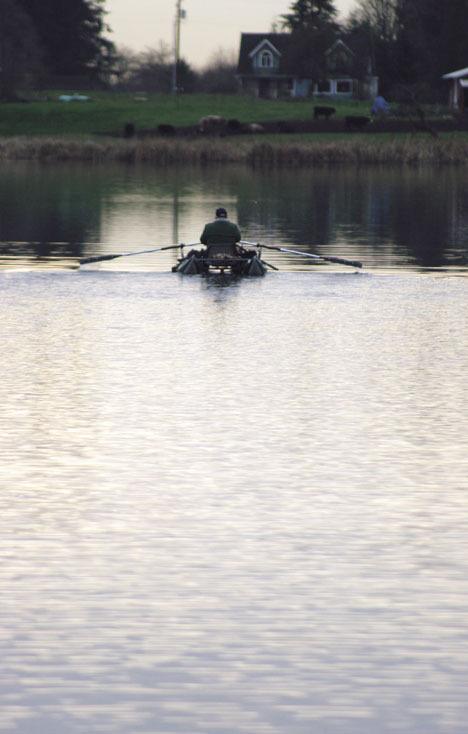The parks district is hoping to change its tune when it comes to its maintenance-and-operations levy.
District officials have put a measure on the Feb. 9 ballot for the renewal of the tax levy that pays for parks and programs. But while the levy rate will remain constant at 15 cents per $1,000 of assessed property value, the normal two-year duration of the levy has been doubled.
The district is asking voters to approve a four-year levy. Should the levy pass, a person with a home valued at $300,000 would pay $45 per year.
“It makes sense to ask for a four- versus two-year levy,” said Parks Commissioner Jim Porter, who has served the district since its inception in 1983. “The extra time provides taxpayers with a sense of stability that the rate won’t increase during that period.”
The reason for the extension is the district’s newly acquired responsibilities.
Last month, parks commissioners voted unanimously to take over maintenance-and-operations duties for the public-access sites of three South Whidbey lakes — Lone and Goss lakes in Langley and Deer Lake in Clinton.
If the levy measure passes, South Whidbey Parks & Recreation will continue its lake management role through 2013.
Accepting responsibility would also give the parks district the chance to bring the public areas up to parks standards, which are very high, said Porter. The three properties are owned by the Department of Natural Resources and have been leased to the county for the past 25 years.
Parks Commission chairman Don Wood said preserving the public’s access to the lakes was important when officials realized cash-strapped Island County couldn’t handle the costs any more.
“We feel comfortable that the extended time will allow us to keep what we have in good condition, while seeing that the lakes — which are heavily used by South Enders — don’t suffer,” Wood said.
Starting this month, the district is handling routine garbage collection, picking up trash, emptying portable restrooms, sweeping, cutting vegetation and other essential tasks.
Ballot proposals for the parks district have been frequent in recent years.
This is the fourth time in three years the district has gone to the voters for funding.
In February 2008, taxpayers approved a 20-year, general obligation bond worth $1.6 million for capital improvements, including upgrades to the Sports Complex, Trustland Trails and Community Park, and renovations at Castle Park.
Both measures easily passed, with more than 60 percent of the vote.
In November 2008, however, 61 percent of voters said “no” to the district’s plans for a $15.2 million aquatics and recreation facility.
The parks budget for 2010 has a starting balance of $751,000, expected revenue of $977,000 and expenditures of $1.3 million.
Parks commissioners examined the feasibility of asking voters to approve a lower levy rate — the 15-cent figure hasn’t changed since 1983 — but decided against it.
“We looked at that,” Porter said. “That may seem a good idea today, but we have rising costs like anyone.”
“We’ve been good stewards of the public’s money over the years,” he added. “We’ve held the number of employees to six since 2000, even as our operations have increased. We have to be realistic about the future.
“The levy allows us to continue operating the parks and provide programs for the community,” Wood added. “Last year alone, more than 2,500 kids and adults were involved in a range of activities. We don’t want see any of that go away.”



